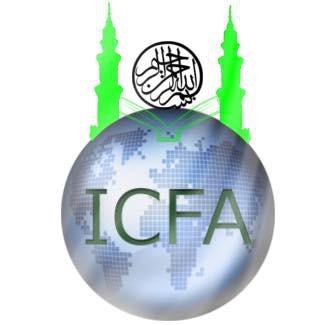 Sidi Ahmad Deedat (R A) to conclude his beautiful booklet on science and the Qur’an says: The seeds of this booklet, “” was probably sown by the Roving Ambassador of Islam, the silver-tongues orator — Maulana Abdul Aleem Siddiqui. I was only a schoolboy when he visited South Africa on a lecture tour in 1934. Among his man erudite speeches, I heard him talk on ‘Cultivation of Science by the Muslims.” Subsequently, a booklet under the same title was published by the World Federation of Islamis Missions, Karachi, Pakistan, which brings back the earlier joy and thrill of the discourse I heard in my teens. In memory of that great servant of Islam, I reproduce here, for posterity, a few words of what the Maulana had to say on the relationship between the Holy Quran and the branches of scientific knowledge:
Sidi Ahmad Deedat (R A) to conclude his beautiful booklet on science and the Qur’an says: The seeds of this booklet, “” was probably sown by the Roving Ambassador of Islam, the silver-tongues orator — Maulana Abdul Aleem Siddiqui. I was only a schoolboy when he visited South Africa on a lecture tour in 1934. Among his man erudite speeches, I heard him talk on ‘Cultivation of Science by the Muslims.” Subsequently, a booklet under the same title was published by the World Federation of Islamis Missions, Karachi, Pakistan, which brings back the earlier joy and thrill of the discourse I heard in my teens. In memory of that great servant of Islam, I reproduce here, for posterity, a few words of what the Maulana had to say on the relationship between the Holy Quran and the branches of scientific knowledge:
“The stress which the Holy Quran has laid on the scientific study of the universe is a phenomenon unique in the religious literature of the world. Repeatedly it calls our attention to the multifarious phenomena of nature occuring around us. Repeatedly it exhorts the Muslims that the pursuid of scientific knowledge is one of their religious duties. Repeatedly it emphasises the great truth unknown to the pre-Quranic world that everything in nature is for the service of man and should be harnessed by him for his use. It exhorts us to study the structure and functrion fo the human organism, the structure, functions and distribution fo animals, the form, structure, functions, classification and distribution of plants, and these are problems of BIOLOGY.
“It exhorts us to study the orde rof nature and the general properties of matter as affected by energy, which is the problem of modern PHYSICS.
“It exhorts us to study the properties of substances both elementary and compound and the laws of their dcombination and action one upon another which is the problem of modern CHEMISTRY.
“It exhorts to us the study the structure and mineral constitution of the globe, the different strate of which is composed, the changes that take place in its organic and inorganic matter, etc, etc., which are the problem fo modern GEOLOGY.
“It exhorts us to study the general description fo the earth, its phyusical divisions into seas, rivers, mountains, plains, etc., and the minerals, plants and animals in each, and its political divisions which are the problems fo modern GEOGRAPHY.
“It exhorts us to study the causes which bring about the alternation fo day and night, the variation of the seasons, the movement of the planets and other celestial phenomena, which are the problems fo modern ASTRONOMY.”
“It exhorts us to study the movements of winds, the formation and evolution of clouds and the production of rain, and other similar phenomena, which are the problems of modern METEROLOGY.”
For centuries, Muslims were world leaders in the field of scientific learning. Then slowly, the leadership began to slip away from their hands. Muslims had failed in their leadership role and materialistic Europe moved forward to fill the vacuum in leadership created by the Muslims.
Further, the Maulana records tha contribution made by the Muslims as follows:
“The intellectual upheaval created by Islam was a gigantic one. There is not a single department of learning which they have not carved out a high position for themselves.
“In truth, Islam intends the Muslim community to be a community of intellectuals, and hte cultivation of science and all other forms of learning is one of the primary aims of Islam. Had it not been for the Muslims, Europe would never have seen its way to the Renaissance and the modern scientific era would never have dawned. Those nations who have received their knowledge of science from Europe are in fact indirectly the disciples of the Islamic community fo the past. Humanity owes to Islam a debt which it can never repay and gratitude which it can neever forget.”
The silver tongues orator (the Maulana) ended his masterful exposition of the topic — “CULTIVATION OF SCIENCE BY THE MUSLIMS,” with the words:
“Before I conclude, let me affirm once more that the Muslim community is out and out a creation of Islam which in its turn is rooted in Divine revelation. Nothing but belief in and the practice of Islam can make an individual a Muslim. Islam has laid it down as a religious duty that a Muslim should enquire inot the reality of objects around him, so that his scientific enquiry may lead him to the knowledge of his Creator. Scientific enquiry in Islam is not an end but a means to the attainment of higher end. And this is really the true end of humanity. “TO ALLAH WE BELONG AND TO ALLAH IS OUR RETURN”
Holy Quran 2:156
Mouhamed Sakho Tidjani












![[Audio] Ecoutez Radio Modou Internationale avec Alain Djiguel du 16 août 2015. Politique, économie, culture, sport](https://mouhamedsakho.com/wp-content/uploads/2015/06/modou300X3003.gif)



![[Audio] Radio Mourid International du 7 novembre 2013](https://mouhamedsakho.com/wp-content/uploads/2013/07/bamba.jpg)